Spartan Race Tips From The UK’s Jonathan Albon
The Inov-8 athlete and 2014 Spartan Race World Championship winner shares his top tips to master obstacle racing
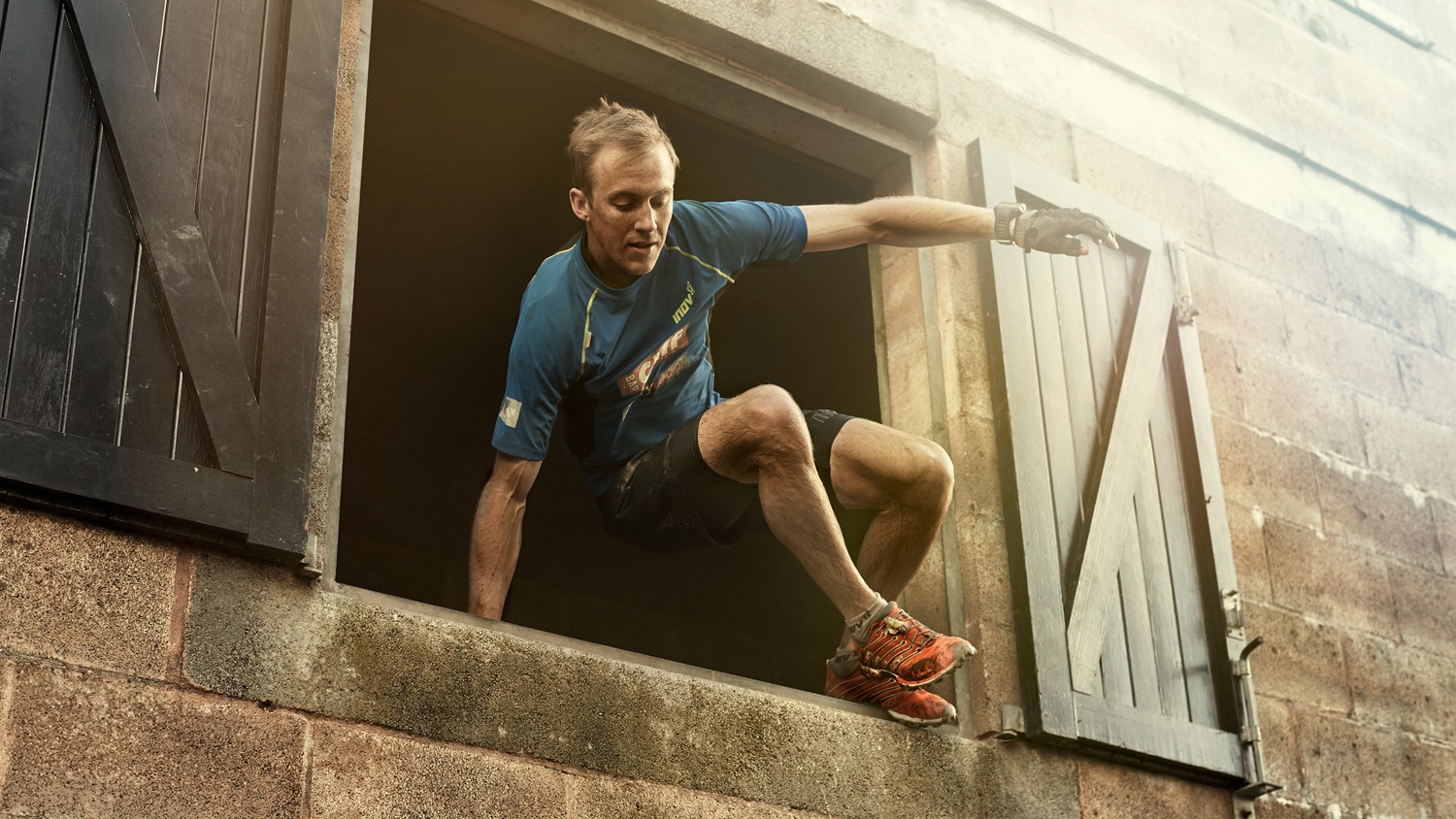
In September 2014, Jonathan Albon of the Inov-8 OCR UK racing team won the Spartan Race world championship, the biggest date in the obstacle course race calendar, going from the UK’s stand-out competitor to the best in the world – no small feat. Before he reached the starting line, he spoke to Coach’s sister title, Men’s Fitness, about how he prepared for the contest.
While Albon was facing off against the world’s best over 12 brutal miles of hills, mud and water, rope climbs, barbed wire crawls and fire pits in the US, his advice still applies if you’ve signed up for a Spartan Race in the UK, be it the 5K, 15-obstacle Spartan sprint or 20K, 25-obstacle Spartan Beast. (If you’ve signed up for the Spartan Junior, good on you kiddo, but this advice isn’t really for you – don’t aim for running 350km a month under any circumstances.)
Below, Albon recommends focusing your preparatory workouts on running – getting muddy to recreate the circumstances on race day – and cross-training, researching how to tackle the obstacles you face, investing in the right shoes and a pair of neoprene gloves, eating right before and during the race, as well as making the Spartan Race a social, fun event. Amen.
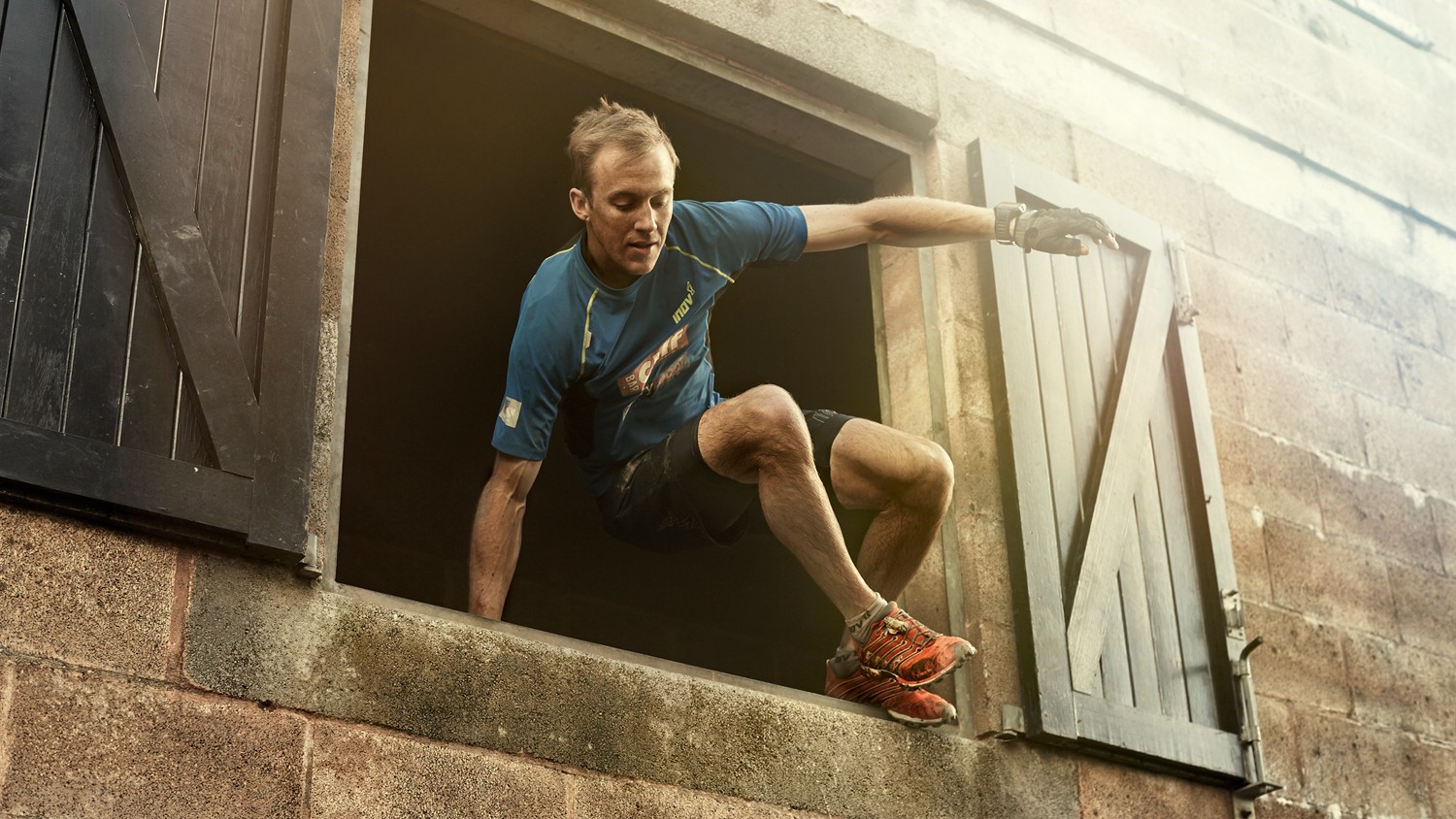
1. Operate Outside Your Comfort Zone
Obstacle course races are designed to take you out of your comfort zone. You will likely get wet, have grit in your shoes, get scratched or stung and have to carry something heavy. It will hurt. You can prepare yourself by incorporating some of these elements into your training. Get off-road, get dirty and push yourself.
2. Run. A Lot
Most obstacle race courses in the UK are probably about 80% running and 20% obstacles. This means that in order to have a shot at completing or setting a fast time, you need to be able to run. There are many fancy training schedules you can follow but the simplest way to get better at running is just to do more of it. Run hard, long and include hills. I’ve worked hard at my running and am now doing around 350km per month.
RECOMMENDED: 50 Running Tips
3. Get into Circuit Training
You don’t just need to be good at running; you need to be strong too. For obstacle course racing this doesn’t mean you need to be able to squat two times your body weight or bench press a small car! The best exercises revolve around you moving your bodyweight, as you will do during a race. So, hit the press-ups, pull-ups, squats, burpees, planks and sit-ups. Do them one after another as part of a circuit training session. I also do a lot of functional fitness training.
Sign up for workout ideas, training advice, reviews of the latest gear and more.
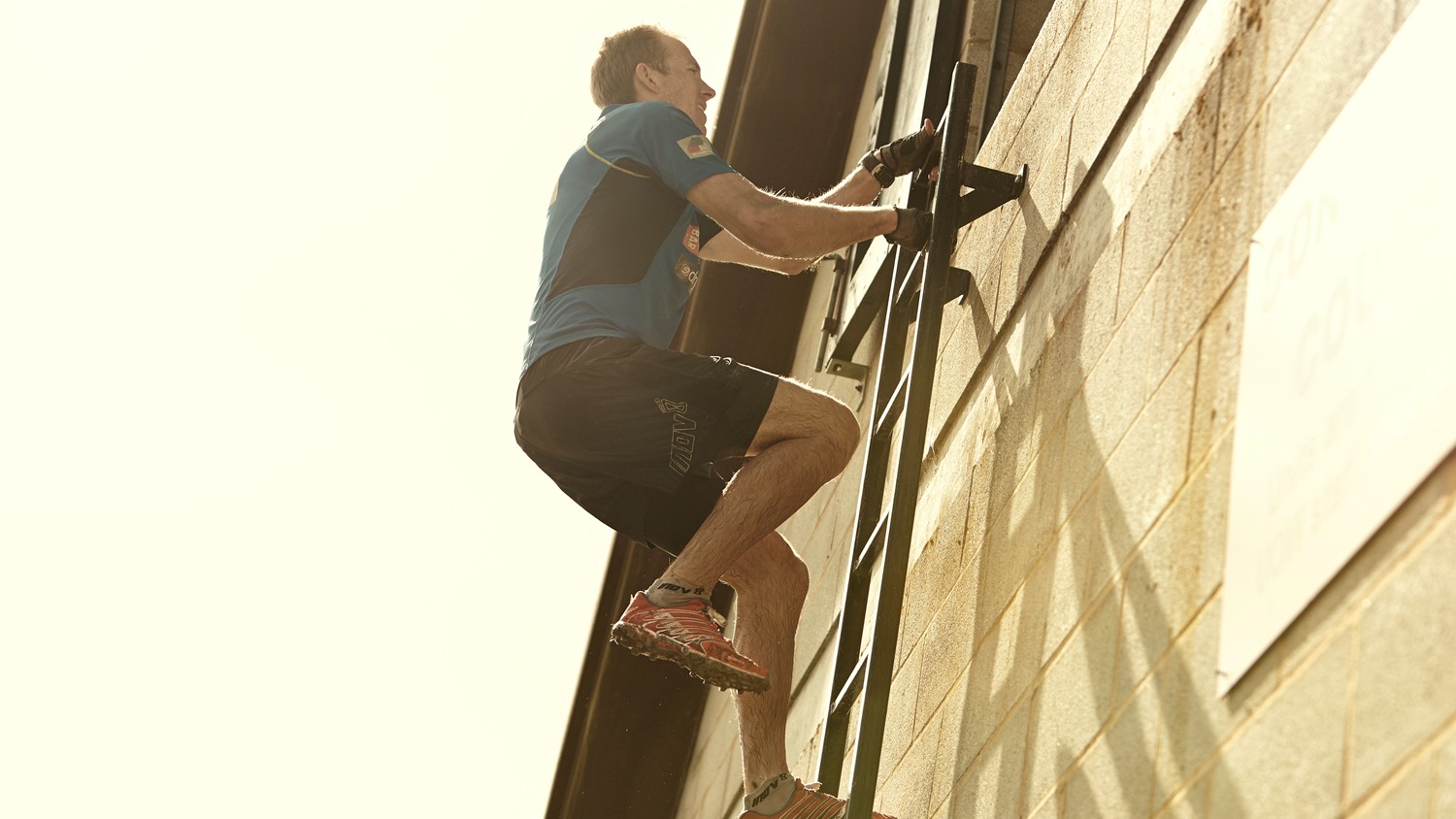
4. Work on Your Technique
There are many types of obstacles, such as monkey bars and wall climbs. Learning the correct technique to negotiate them will save you time and energy on race day, plus reduce the risk of injury. Watch the many technique videos online then, if possible, get out and practise on specialist training courses.
5. Live Healthily
Being healthy is always going to benefit you in any sporting pursuit. Eat well, get lots of sleep and stay active – obstacle racing is tough enough without making it even harder on your body!
RECOMMENDED: How to Sleep Better
6. Wear the Right Shoes
In the run-up to competing in my first obstacle course race in 2009 I bought a pair of Inov-8 X-talon 212 trainers. On race day I felt as if I was cheating! The aggressive cleats on the outsole gave me the grip to fly up and down steep hills and skip over thick mud, while others around me floundered. Five years on they are still my favourite shoe and the ones I wear at the world championship.
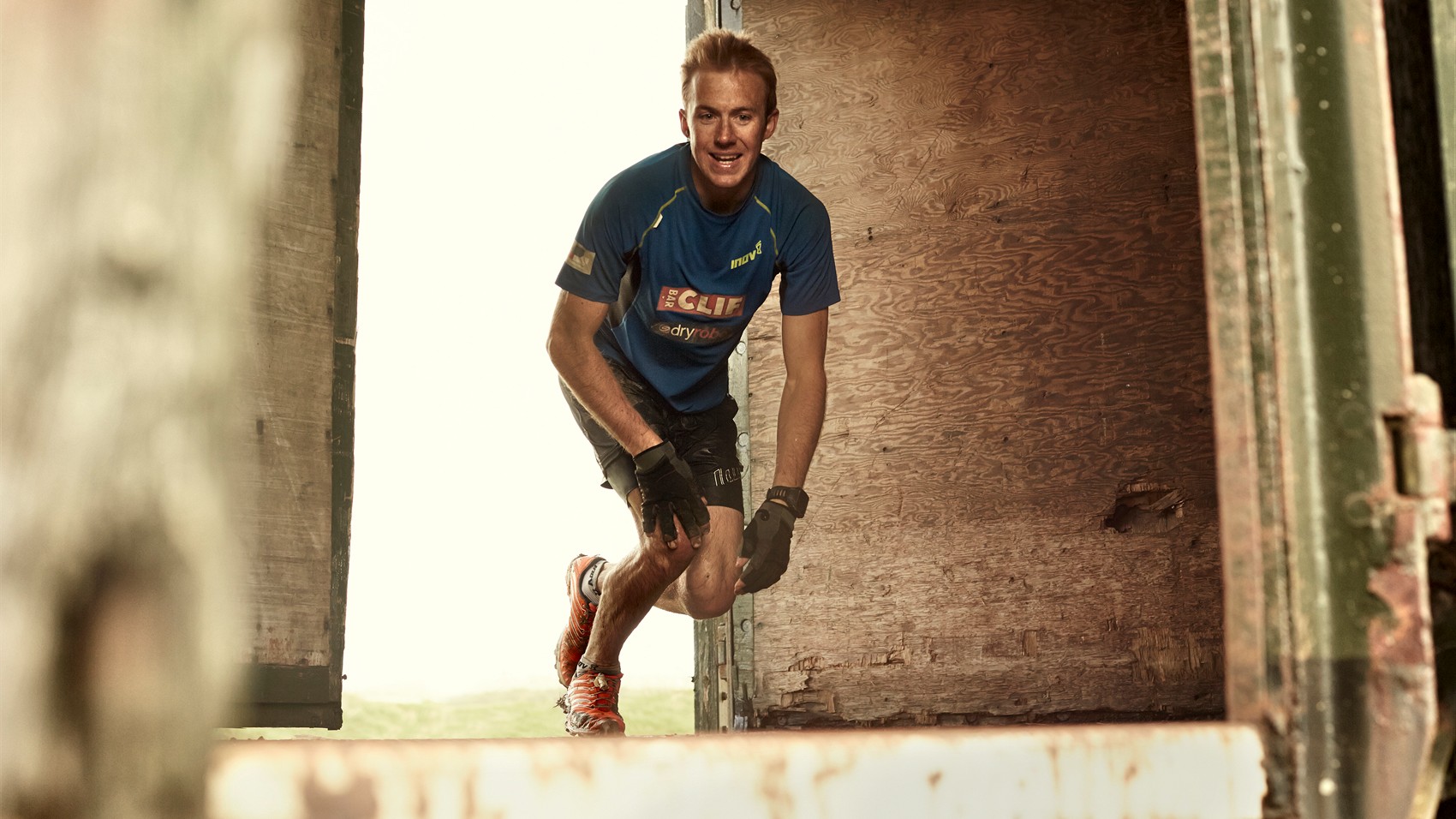
7. Gloves
Taking care of your hands on race day is imperative. Gloves are a good idea if there will be any rope work because they will help prevent burns. In the cold, neoprene gloves can make a massive difference. You can have the strongest grip in the world but once your hands get cold they’re useless.
8. Get Your Race Nutrition Right
This can make or break a race. Fuelling your body with what it needs is crucial, especially in longer races. Eating energy gels is a great way to do this. Make sure you try them in training so you know which ones you get on with best.
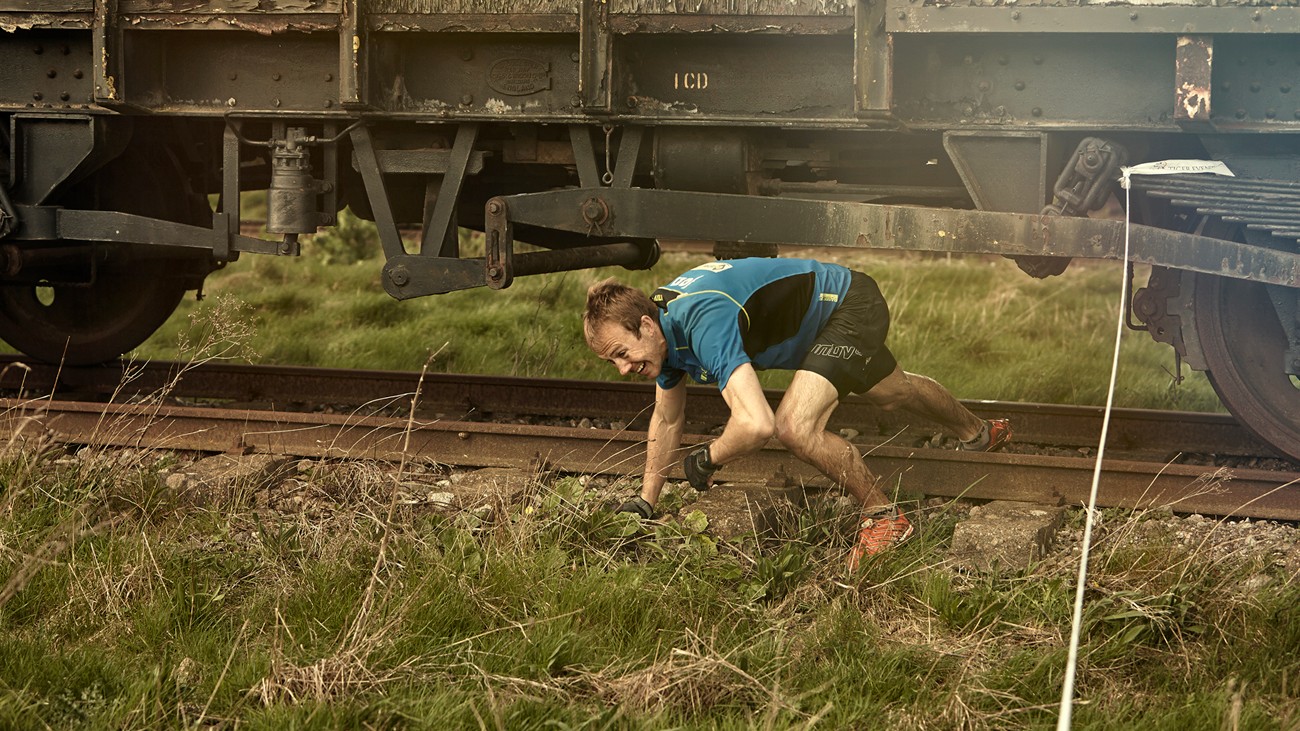
9. Make it Social
The UK-based team I am part of, Inov-8 OCR, is a racing team but we’re also a group of friends. Teaming up to train or race boosts motivation and makes the experience a hell of a lot more fun. I also use the fitness app Strava to track my training and that of my friends and other racers online.
10. Have Fun!
Make both training and racing fun. If it’s fun you will do more of it and therefore improve. Sport is supposed to be fun, and that applies especially to obstacle racing, so enjoy the experience and never give up.
RECOMMENDED: Tough Mudder Training Plans
Niamh interned for Men’s Fitness UK (which predated and then shared a website with Coach) in 2014, writing a series of articles.
